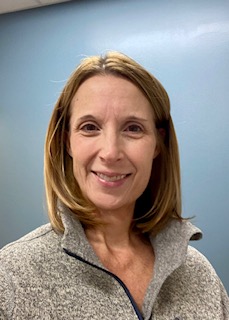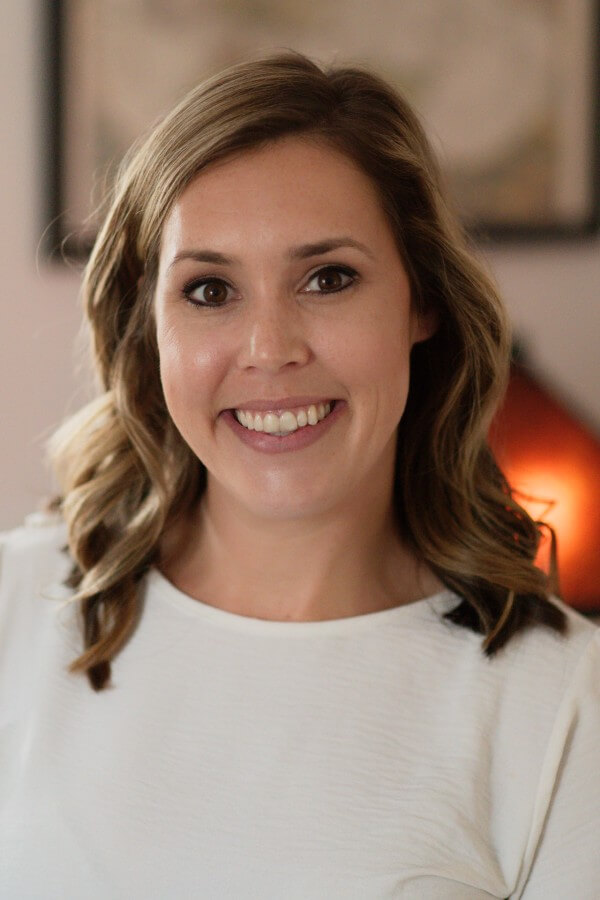Teletherapy and Therapy for Bishop State Community College Students
Supporting the unique mental health needs of Bishop State Wildcats through flexible hybrid and online therapy options
Page Index
Quick Navigation
Understanding Bishop State Community College Student Mental Health Needs
Bishop State at a Glance
Bishop State Community College is a historically black community college founded in 1927, serving approximately 3,800 students across four campuses in Mobile, Alabama. As a public, state-supported institution, Bishop State offers more than 50 associate degree and certificate programs focused on preparing students for workforce opportunities and transfer to four-year institutions.
Mental Health Challenges Facing Bishop State Students
Community college students face unique mental health challenges that differ from those at four-year institutions. Many Bishop State students are balancing academics with work, family responsibilities, and financial concerns. These challenges can significantly impact mental wellbeing and academic success.
Key Mental Health Factors at Bishop State
Working students: Many Bishop State students work part-time or full-time while attending classes, creating significant time management challenges and stress
First-generation college students: Navigating higher education without family experience or guidance can create additional anxiety and pressure
Financial stressors: Concerns about tuition, living expenses, and student loans can contribute to chronic stress and anxiety
Career transitions: Many students are pursuing education to change careers, adding pressure to succeed
Academic challenges: Adapting to college-level coursework can be overwhelming, especially for students returning to education after an absence
Diverse student body: Meeting the mental health needs of a diverse student population requires culturally sensitive approaches
Mental Health Impact on Academic Success
Research shows that untreated mental health challenges significantly impact academic performance, retention, and completion rates. Community college students experiencing anxiety, depression, or stress are more likely to:
Miss classes and fall behind on coursework
Struggle with concentration and information retention
Experience decreased motivation and academic engagement
Drop classes or withdraw from programs
Take longer to complete their degrees or certificates
Mental Health Resources for Bishop State Students
On-Campus Resources
Bishop State Community College offers several support services to help students maintain their mental health and academic success:
Student Support Services: Provides academic advising, personal counseling, and referrals to community mental health resources
ADA Accommodations Office: Supports students with documented disabilities, including mental health conditions
TRIO Student Support Services: Offers support for first-generation, low-income students, and those with disabilities
Student Health Services: Limited health services may be available
Community Resources Near Bishop State
Mobile, Alabama offers several mental health resources that can complement the services at Taproot Therapy Collective:
AltaPointe Health: Comprehensive mental health services in Mobile
University of South Alabama Psychological Clinic: Offers low-cost therapy services
Mobile Crisis Response Team: 24/7 emergency mental health services
National Alliance on Mental Illness (NAMI) Mobile: Support groups and resources
Lifelines Counseling Services: Crisis intervention and counseling
When to Seek Help
Consider reaching out for support if you're experiencing:
Persistent feelings of sadness, anxiety, or overwhelm
Difficulty concentrating or completing academic tasks
Changes in sleep or eating patterns
Social withdrawal or isolation
Increased use of alcohol or substances to cope
Thoughts of self-harm or suicide
Remember: Seeking help is a sign of strength, not weakness. Early intervention can prevent mental health challenges from affecting your academic success and wellbeing.
Teletherapy Benefits for Bishop State Students
Why Teletherapy Works for Community College Students
Teletherapy offers unique advantages that align perfectly with the busy lives of Bishop State Community College students:
Flexible scheduling without commute time: Attend sessions between classes, during lunch breaks, or after work
Access therapy from any of Bishop State's four campuses or from home
Maintain therapy consistency during academic breaks or schedule changes
Reduce barriers to seeking help, including transportation challenges
Maintain privacy in a college environment
Connect with specialists who understand the unique challenges of community college students
Our Hybrid Approach
At Taproot Therapy Collective, we understand the demands placed on Bishop State students. Our hybrid approach combines the convenience of teletherapy with the option for in-person sessions when needed:
Most therapy modalities available via secure teletherapy
In-person options for treatments that benefit from face-to-face interaction
Seamless transitions between online and in-office care as needed
HIPAA-compliant secure video platform ensures confidentiality
Learn More About Our TeletherapyTreatment Options for Bishop State Students
Specialized Services for Community College Students
Our therapists understand the unique challenges faced by Bishop State students and offer specialized services to address these needs:
Academic stress management for students balancing work and education
Support for first-generation college students navigating higher education
Anxiety and depression therapy focused on the community college experience
Career transition support for students changing professions
Trauma-informed approaches for adult learners with past educational trauma
Executive functioning and ADHD support for academic success
qEEG Brain Mapping
qEEG Brain Mapping is an advanced diagnostic tool that measures electrical activity in the brain to identify patterns associated with various mental health conditions. This technology helps create personalized treatment plans based on your unique brain activity.
Note: qEEG Brain Mapping requires an in-person visit to our office, but the results can be discussed and integrated into your treatment plan via teletherapy sessions.
Learn About qEEG Brain MappingMicronutrition for Mental Health
Nutritional deficiencies can significantly impact mental health and cognitive function. Our micronutrition approach addresses these deficiencies through targeted supplementation and dietary guidance.
We recommend Hardy Nutritionals® Daily Essential Nutrients, a comprehensive micronutrient formula backed by research for supporting mental health. Use code "Taproot" for 15% off at gethardy.com.
Learn About MicronutritionEmotional Transformation Therapy (ETT)
ETT is an innovative approach that uses light and color to access and process emotional material more rapidly than traditional talk therapy. This technique can be particularly effective for mood disorders, anxiety, and trauma.
Note: ETT must be conducted in person at our office.
Learn About ETTSomatic Therapy
Somatic therapy addresses the connection between mind and body, helping you release stress, tension, and trauma stored in the body. This approach is especially helpful for anxiety, trauma, and stress-related conditions.
Availability: Fully available via teletherapy
Learn About Somatic TherapyEMDR (Eye Movement Desensitization and Reprocessing)
EMDR is an evidence-based therapy that helps process traumatic memories and reduce their emotional impact. It's effective for PTSD, anxiety, and other trauma-related conditions common among students with adverse life experiences.
Availability: Fully available via teletherapy
Learn About EMDRBrainspotting
Brainspotting is a powerful therapeutic technique that identifies, processes, and releases neurophysiological sources of emotional and physical pain, trauma, and dissociation. It's particularly effective for students dealing with test anxiety and academic stress.
Availability: Fully available via teletherapy
Learn About BrainspottingLifespan Integration
Lifespan Integration is a gentle therapeutic method that helps heal past trauma by connecting neural networks through time. This approach is especially beneficial for adult students who experienced childhood trauma or disrupted attachment.
Availability: Fully available via teletherapy
Learn About Lifespan IntegrationParts-Based Therapy
Parts-Based Therapy recognizes that our personalities consist of different "parts" or subpersonalities. This approach helps integrate these parts, reducing inner conflict and promoting healing. It's effective for addressing complex trauma, anxiety, and depression.
Availability: Fully available via teletherapy
Learn About Parts-Based TherapyMeet Our Therapists
Our experienced therapists specialize in supporting college students and academic professionals. All offer teletherapy options with flexible scheduling to accommodate the busy lives of Bishop State students.

Pamela Hayes, MSW, LMSW
EMDR & Somatic Therapy
Specializes in helping students navigate academic stress and trauma with evidence-based approaches.
View Profile
Dr. Haley Beech, PhD, MSW, LMSW
Women's Issues & Perinatal Health
Expertise in perinatal health, medical trauma, and helping parents of children with disabilities.
View Profile
Becky Milstead, LPC
Teen & Family Therapy
With over 20 years experience helping teenagers and families heal trauma and improve communication.
View Profile
James Waites, LICSW, MSW
Physician Burnout & Career Coaching
Specializes in helping professionals, students, and those making career transitions overcome burnout and trauma.
View Profile
Kristi Wood, LICSW, MSW, PIP
QEEG & Neurostimulation
Advanced brain-based approaches for students dealing with anxiety, trauma, personality disorders, and depression.
View Profile
Kristan Baer, LMSW, MSW, SEP
Somatic Experiencing & Trauma
Specializes in trauma-focused therapy helping clients heal from PTSD, anxiety, and depression through a body-centered approach.
View Profile
Dr. Jason Mishalanie
Depth Psychology & Jungian Therapy
Specializes in helping students explore deeper meaning and purpose, particularly during major life transitions.
View Profile
Marie Danner, LMSW
Anxiety & Depression
Helps students navigate anxiety, depression, and life transitions with compassionate, evidence-based care.
View Profile
Joel Blackstock, LICSW
Trauma & EMDR
Specializes in trauma treatment and anxiety disorders, with expertise in helping students overcome academic challenges.
View Profile
Alice Hawley, LPC
Anxiety & Trauma
Helps students overcome anxiety, trauma, and stress with compassionate, client-centered approaches.
View ProfileInsurance & Payment Options
Insurance Plans
We accept Blue Cross Blue Shield insurance plans. Please contact us to verify your specific coverage.
Our team will help you understand your benefits and any potential out-of-pocket costs before beginning therapy.
Self-Pay & Sliding Scale
For students without insurance coverage or those who prefer not to use insurance:
We offer sliding scale options based on financial need
Our LMSWs provide services at a reduced sliding scale rate
Multiple session packages may be available at discounted rates
We're committed to making mental health care accessible for all Bishop State students.
Teletherapy Locations
Serving Bishop State's Multiple Campuses
Our teletherapy services are available to Bishop State students at all campuses:
Main Campus in downtown Mobile
Baker-Gaines Central Campus
Southwest Campus
Carver Campus
We also serve Bishop State students who take classes at other locations throughout Mobile and Washington Counties.
Teletherapy Available Throughout Alabama
We offer teletherapy across the state of Alabama, including these major cities:
Dothan • Vestavia Hills • Madison • Prattville • Mountain Brook • Homewood • Tuscaloosa • Montgomery • Florence • Birmingham • Auburn • Mobile
Learn More About Our Teletherapy Service AreasFrequently Asked Questions
How does teletherapy work for Bishop State students?
Our teletherapy sessions are conducted through a secure, HIPAA-compliant video platform. You'll need a private space, a reliable internet connection, and a device with a camera and microphone. Many Bishop State students complete sessions from their homes, quiet areas on campus, or even in private study rooms at the library when roommates are present. Sessions are just as effective as in-person therapy for most concerns.
How is your service different from on-campus counseling services?
While Bishop State offers valuable student support services, as a private practice we provide specialized treatment modalities, flexibility in scheduling, and the option to continue therapy even during semester breaks or after graduation. We're also an excellent option for students who may prefer working with a therapist outside of the college system or who need specialized services not available on campus.
Can you work with my academic challenges specific to Bishop State?
Absolutely. Our therapists are familiar with the community college environment and the specific stressors faced by students balancing academics with work and other responsibilities. We've worked with students from various academic programs and understand the unique challenges faced by community college students.
Will my instructors or Bishop State administration know I'm in therapy?
No. Your therapy is completely confidential. As an independent practice, we do not share any information with Bishop State unless you provide explicit written permission. The only exceptions to confidentiality are standard legal requirements related to imminent safety concerns.
How much does therapy cost with a student budget?
We understand the financial constraints many Bishop State students face. That's why we offer sliding scale rates based on financial need, accept BCBS insurance, and work with students to find a payment option that fits their budget. Our LMSW therapists offer services at a reduced sliding scale rate, making therapy more accessible.
Additional Resources
Podcasts and Educational Resources
Explore our podcast and educational resources for more information on mental health topics relevant to community college students:
Helpful Guides for Students
These resources may be particularly helpful for Bishop State students:
Ready to Take the First Step?
Contact us to learn how our therapists can support your mental health journey at Bishop State Community College.
Contact UsWhat to Expect
When you contact us, we'll discuss:
✓ Your current challenges and goals
✓ Treatment approaches that might help
✓ Information about our teletherapy platform
✓ Insurance coverage and payment options
✓ Scheduling your first appointment
Taproot Therapy Collective
2025 Shady Crest Dr, Suite 203
Hoover, AL 35216
Phone: (205) 598-6471
Fax: 205-634-3647
Email: [email protected]
Important Disclaimer
Taproot Therapy Collective is not affiliated with Bishop State Community College. We are an independent, private therapy practice offering supportive mental health services to Bishop State students and staff. There is no business relationship, partnership, or official connection between Taproot Therapy Collective and Bishop State Community College. The resources listed on this page are provided as information only.
While we specialize in serving the Bishop State community, we are not endorsed by, sponsored by, or in any way officially connected with Bishop State Community College. Taproot Therapy Collective operates as a separate entity from Bishop State and its affiliated programs.
If you are experiencing a mental health emergency, please call 911 or go to your nearest emergency room immediately. You can also contact the National Suicide Prevention Lifeline at 988 or text HOME to 741741 to reach the Crisis Text Line.
